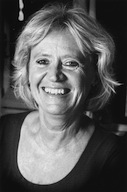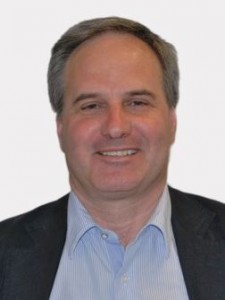History
Although European countries have different levels of psychomotor development, several realities in education, research and professional training, there is a common foundation for their work, which approaches the human being, as a unity.
Psychomotricity is a profession that is developing, spreading and is constantly increasing its reputation. Each country has its own psychomotor history, its own level of education and of recognition of the profession and its own specialities and methods to achieve their goals.
Over the years concepts have developed parallel with each other in the various European countries without much contact. So the similarities can be understood in the light of our common cultural history. Some countries have a long tradition, others only started a few years ago. Over the years the European Professional associations have had informal contacts. Today they are united in The European Forum of Psychomotricity (the EFP), which was founded in 1996 and has now reached 14 member countries.
EFP history started in Marburg in May 1995. There, representatives from the 15 countries were invited to a meeting and the idea of a European Forum was accepted as an essential step to promote the profession and scientific development of Psychomotricity in Europe. After that moment, other meetings took place to elaborate the statutes, and finally, in September 1996 this official document was formally signed at the Town Hall of Marburg.
The General Assembly and the presidium of the EFP are working for the promotion and recognition of psychomotricity at all levels and on achieving political goals as well. The EFP works for the spread of psychomotricity in all European countries and for the development of a psychomotor education at a Bachelor level in all member countries as soon as possible.
In the different European countries Psychomotricians play a part in several areas such as health, prevention, re-education, education and research – and they apply to all ages and all groups of population.
A General Assembly is held every year with the 14 delegates – one from each member-country and is responsible for the overall decisions.
Between the annual assemblies the presidium with its 5 elected members works to carry out the decisions of the GA and coordinate all the EFP structures and activities.
Up to now, the EFP has had four Presidents elected by the General Assembly:
- Tilo Irmischer, Germany: 1996 – 2001
- Lone Frimodt, Denmark: 2002 – 2010
- Rui Martins, Portugal: 2011 – 2017
- Pim Hoek, Netherlands: since 2017
 |
 |
| Tilo Irmischer 1st President of EFP |
Lone Frimodt 2nd President of EFP |
 |
 |
| Rui Martins 3rd President of EFP |
Pim Hoek 4th President of EFP |
The EFP has also three permanent commissions working for psychomotor education and further education, for science and research and for professional development. They have a defined mission to carry out and they meet at least once a year.
The members of the commissions are professionals from all 14 countries who have always given their contribution to the development of the psychomotor idea by putting their energy into the work of the EFP. They work and exchange ideas to promote the concept and the profession to the benefit of professionals, students, teachers, researchers and politicians in all Europe.
Psychomotricity is a recognised profession in several European countries and one of the main EFP goals is to make education and the profession recognised in every member country by supporting the national efforts on their way to recognition, with the respect of each county’s distinctive character.
The EFP develops different events such as a yearly Students’ Academy (the first took place in 1999 in Denmark) and every four years a European Congress. Till now EFP has organised four European Congresses.
The EFP also wants to play an important political role for the European Commission when it comes to all psychomotor matters such as curriculums of psychomotor education and recognition of the profession.
In 2007, the EFP achieved an important political goal: The official recognition by the European Commission in Brussels, and now the EFP appears at the homepage of the European Commission as recognised organisation to be heard in matters of psychomotricity. The EU Commission points out a directive from 2005 as an important step in the process of recognition of professional qualifications and of the free movement of professionals in the European Union.
They underline the importance of co-operation between the member states to make sure that citizens can use their right of free movement but at the same time ensure that they have sufficient qualifications.
The initiative of creating Bilateral Charters between National Association has been patronised by the EFP, to facilitate the mobility of professionals between the two countries. It is seen as a self-regulation of the profession.
This has already been established between the EFP member countries in several cases – for instance between Holland, Portugal, France, Denmark and Italy, So the EFP is progressing to increase the visibility of psychomotricity and of the EFP at the European political level.
Over the years since the creation of the European Forum of Psychomotricity, the education and practices of the different countries have come closer to each other and the mutual inspiration and knowledge have opened and increased the interest of learning from each other.
We are exchanging on several levels:
- The European mobility among students, teachers and professionals has increased enormously .
- On a scientific and professional level we are exploring the important question of our scientific and professional identity
- And politically we are working to for getrecognition of the profession in all European countries.
The EFP is confident for the future of psychomotricity – even if there are still challenges and a long way to go.